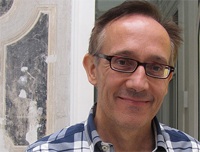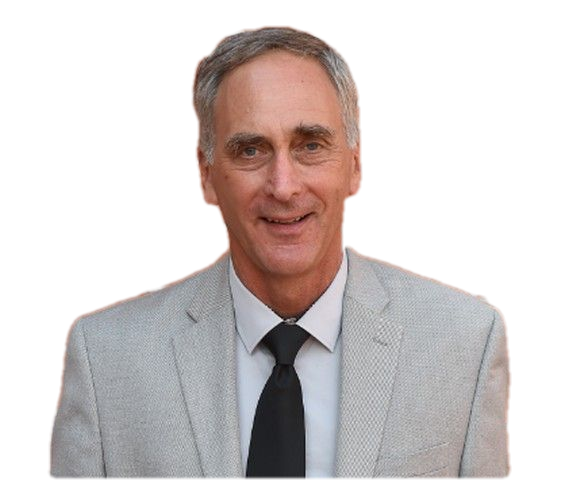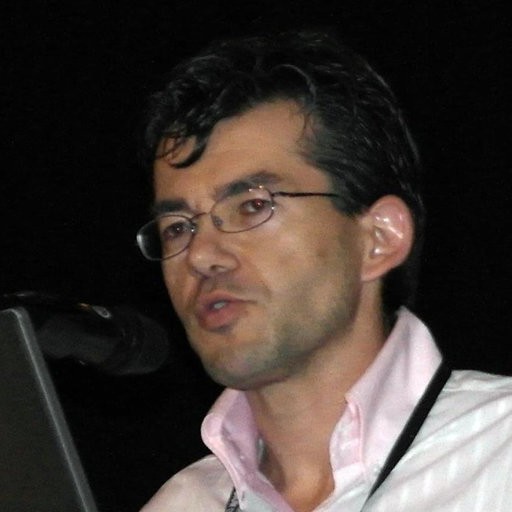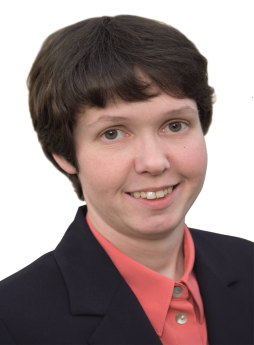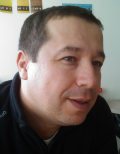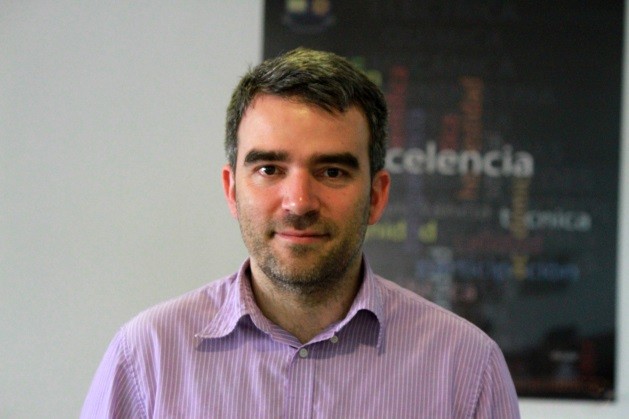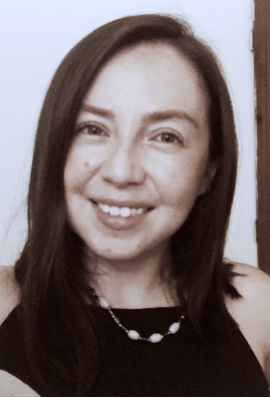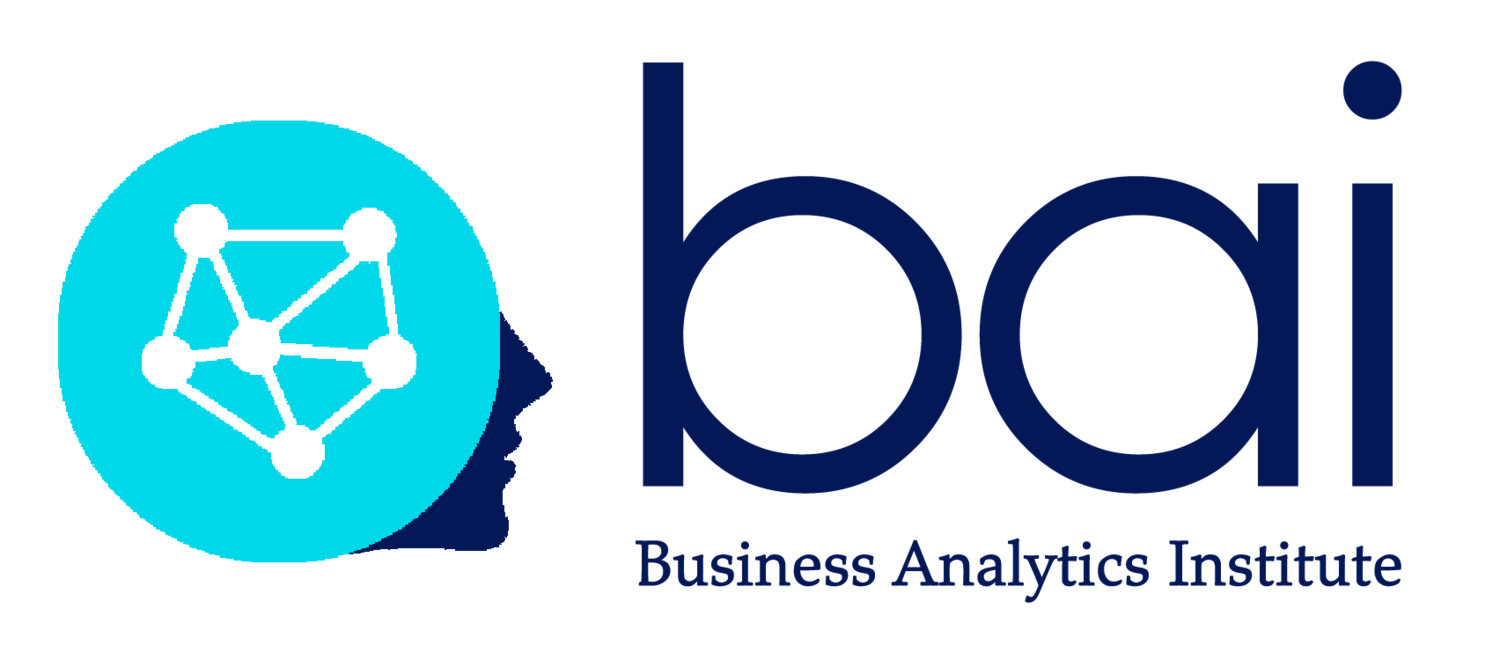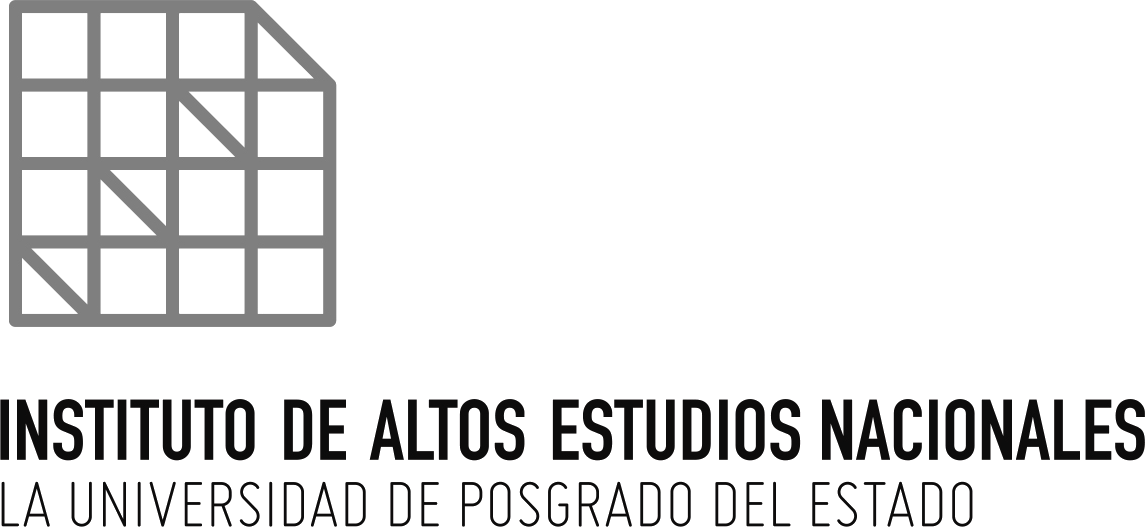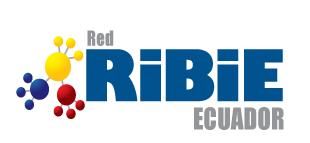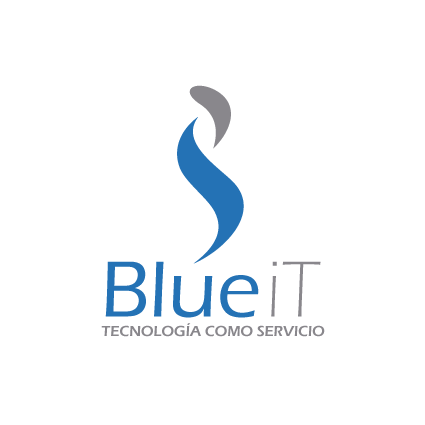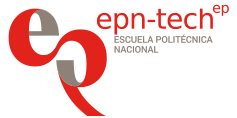JISIC2019 - ICI2ST2019
Conference link:
DAY 1:
DAY 2:
DAY 3:
Profits at the dawn of Cybercrime-as-a-Service
KEY INTERNATIONAL SPEAKERS
|
Dr. Rafael Sánchez-Montoya
Conference theme: Success is in the method. ICT, inclusion and disability Abstract: In ICT we seek the framework tool that allows us to integrate different symbolic systems that favor and encourage students to develop their intelligences. To do this, we rely on three keys: 1.- The rings of accessibility, usability and multilevel teaching that we superimpose following a hierarchy inspired by the physical, sensory, motor and intellectual needs of the person. 2.- The models mFREE, bFREE, Microprojects - Flippedclass and Person-Centered Planning with the support of the Wikinclusion Knowledge Base. 3.- The construction of networks that connect the two previous key realities with the different labels that are handled for people with disabilities. Speaker biography: Rafael Sánchez Montoya, PhD in Research Methods and Educational Innovation, University of Cadiz, Spain. Project Director of Creática FREE Iberoamericana for Cooperation. Representative of the Ministry of Education (Spain) in the SEN-IST-NET project of the European Agency for the Development of Special Education. |
|
Dr. Lee Harris Schlenker
Conference theme: Decision-Making on the Road to Artificial Intelligence Abstract: The ability to conscientiously take decisions among alternative possibilities has long been a viewed as a condition that separates man from machines. As innovations in artificial intelligence transform both operational and managerial processes, the distinction between human and machine intelligence is becoming increasing difficult to define. Applications of machine learning are today crossing the threshold of decision support systems to enter the realm of artificial intelligence, and in doing so, redefine the relationships between human and information resources. After reviewing three examples that illustrate the managerial opportunities and challenges in the Life Sciences, Smart Cities, and Transportation, Dr. Schlenker will challenge the audience to consider the ethical choices for both organizations and society at large. Speaker biography: Dr. Lee Schlenker is a Professor of Business Analytics and Community Management and a Principal Consultant of the Business Analytics Institute. He has been instrumental in setting up and managing academic chairs in France for IBM, Oracle and CEGID. He has been a guest speaker in corporate conferences for Apple, Cegid, IBM, Oracle, SAP and SAS in Europe, Asia and the Middle East. Over the last twenty years, he has led dozens of missions for Big 4 consulting groups in the manufacturing, telecommunications, public works and service industries. Recognized as an expert for the European Commission in learning analytics, He has directed or participated in studies on improving management education in the US, Europe, Asia and the Middle East.. |
|
Dr. Sergio Luján
Conference theme: E-learning and disability: barriers, current solutions, future solutions Abstract: Although the right of people with disabilities to education is recognized by most countries through the ratification of the Convention on the Rights of Persons with Disabilities, the reality is that much remains to be done to achieve an inclusive education system at all levels and lifelong learning. Unfortunately, it is still a problem for many people with disabilities to get admission in conventional education institutions. In this talk, the current technological solutions aimed at inclusion of people with disabilities in the field of education will be shown. In addition, a forecast about future solutions for the education of students with disabilities will be also discussed. Speaker biography: Sergio Luján-Mora is Associate Professor of the Department of Software and Computing Systems at the University of Alicante in Spain. He has published several research papers at various conferences (ER, UML, DOLAP) and high-impact journals (DKE, JCS, JDBM, JIS, JUCS and UAIS), both nationally and internationally. He has also published several books related to programming, web development, data structure programming and C++ language. His main research topics include web applications, web development, web accessibility and usability, e-learning, MOOCs, and Open Educational Resources. https://cvnet.cpd.ua.es/curriculum-breve/en/lujan-mora-sergio/7352 |
|
Dr. José Aguilar 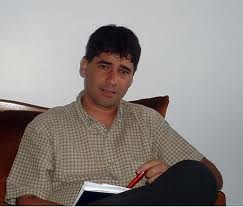
Conference theme: Data-based services for the Internet of Things Abstract: In this conference, we will analyze the utilization of the data to improve the performance of the Internet of Things (IoT) platforms. In addition, we introduce the concept of Autonomic Management System (AMS) for Internet of Things (IoT) platforms, based on the concept of autonomic cycle of data analysis tasks, to improve and maintain the performance in an IoT platforms. The concept of Autonomic Cycle of Data Analysis Tasks is a type of autonomous intelligent supervision that allows reaching strategic objectives around a given problem. In IoT, the AMS composed by an autonomic cycle can optimize the Quality of Services (QoS) and Quality of Experiences (QoE) in IoT platforms. This conference presents the architecture of the AMS (components, knowledge models, etc.), and its utilization in different case studies in IoT context and in Tactile Internet. Speaker biography: Titular Professor at the Department of Computer Science in the Universidad de los Andes and researcher at the Microcomputer and Distributed Systems Center (CEMISID) at the same university. The man research topics are Parallel and Distributed Systems, Artificial Intelligence and Computational Intelligence, Industrial Automation, Science and Technology Management, etc. He has been a visiting research/professor in different universities and laboratories in the world. Currently, he is Executive Secretary of the Centro Latinoamericano de Estudios en Informática (CLEI). |
|
Dr. Juan Pedro Valente 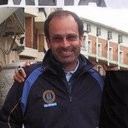
Conference theme: Data Mining in Time Series Abstract: Time Series are present is many areas of science and industry, with special relevance in Medicine. Many medical tests provide results as time series, like electrocardiograms, electroencephalograms, auditory brainstem responses, etc. Data Mining can help the physicians analyze these results, but Time Series data are a great challenge for traditional Data Mining techniques as input data is no longer a relational database, high volume of data requires dimensionality reduction techniques, new distance metrics must be defined, etc. One of the main approaches to solve these problems is Temporal Abstraction, which also brings a very desirable issue, allowing to “translate” numeric time series to a more medical friendly language. Speaker biography: Associate Professor at the Universidad Politécnica de Madrid UPM, Department of Languages and Information Systems, and Software Engineering. His principal skills and expertise relates to Data Mining, Knowledge Discovery, Time Series Analysis, Muscle strength, Knowledge-Based Systems and Medical Data Mining. http://www.upm.es/observatorio/vi/index.jsp?pageac=investigador.jsp&idInvestigador=6631 |
|
Dr. David Benavides 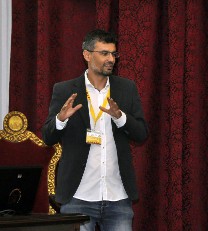
Conference Theme: Challenges on software variability and product lines Abstract: Software is pervasive and will be one of the most important pieces of engineering in the following decades. Reusing software have been a challenge through the 50 years of software engineering existence. In the last decades, variability has been considered a fundamental aspect to manage the systemic reuse of software. Approaches such as software product lines, software factories, feature-based development and generative programming have been proposed based on variability. In this talk, David will talk and reflect on the challenges that exist in these subjects that many authors consider the foundation for developing software products in the future. Speaker biography: David Benavides is an Associate Professor at the University of Seville (Spain), in which he obtained his Ph.D. in 2007. His main areas of expertise are Software Product Lines and Feature Model Analysis. He is also interested in open source and social applications of software systems. He has visited different research centers and has co–authored papers with more than forty external authors along the world and has special connections with South America. |
|
Dr. Dámaso Javier Vicente Blanco 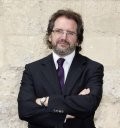
Conference theme: The constraints of the electronic reality in the international legal-private relations Abstract: Information and communication technologies (ICT) set a challenge for international legal relations between individuals. The new technological space is insecure because the transactions depend on electronic operators that must be trusted for the transaction to succeed and not become a hoax or create unwanted damage. All the institutions of property law are involved. From contracts, as central traffic instruments, through liability for damages, intellectual and industrial properties, related aspects of personal data protection, payment instruments, etc. Electronic reality has meant a fundamental transformation of international legal relations between individuals. The new challenges that are yet to come will have to do with the “surveillance” instruments that have become widespread and with the massive incorporation of artificial intelligence, which, as stated, runs the risk of artificially generating an “obsolescence” of the human. Speaker biography: Professor of Private international right at University of Valladolid, Spain. Expertise topics: Electronic government and government regulation, Informatic regulation, XML and legislative documents. |
|
Dra. Christina Andersson
Conference theme: The Importance of Risk Management in Aviation (Does the President Have to Use Another Airline?) Abstract: Starting with the time series analysis of a classical aviation forecasting problem, we proceed to event modeling based on intervention models, including different event patterns, such as ramp, impulse and step, considering decaying and permanent effects. We build transfer function models, discussing the interpretation of the nominator and denominator coefficients of the transfer function in simple and compound models. Furthermore, we introduce the possibility to apply forecasting with simulated catastrophic events Speaker biography: PhD in Mathematics, university of Kaiserslautern, Germany. Msc in Computer Science university of Orebro, Sweeden. Professor in mathematics and computer science for engineering Frankfurt University of Applied Sciences, Germany. Trainer, SAS Education, SAS Institute, Heidelberg, Germany. Associate Professor, Department of statistics, business administration and computer science, University of Orebro, Sweden. Expertise topics : Data mining, Text minig, Temporal series, Bayessian Networks. |
|
Dr. Yamine Ait Ameur
Conference theme: A formal model for system recovery Abstract: The substitution of a system by another one occurs in several cases like adaptation, failures, resilience, reconfiguration, self-healing, etc. System substitution consists in replacing a running system by another one when a given condition holds. In our approach, a system is defined as being a transition system. Each state is characterized by a set of variables and transitions denote state changes. In this talk, we present a stepwise formal approach for system substitution. Substitute systems are formalized by state-transitions systems modelled in Event-B, which refine a shared global specification. State recovery is performed when a failure in the running system occurs. In that case, modes are changed and control is transferred to the selected substitute system. The transfer of the control shall 1) preserve safety of the properties expressed as invariants and 2) identify the recovery state in the substitute system. Proof obligations associated to this substitution operation are defined. Speaker biography: Dr. Yamine Ait Ameur is a full time professor at INPT-ENSEEIHT, Toulouse-France. Since September 2011, He is professor at the computer science and Applied Mathematics Department (DIMA) at ENSEEIHT. Currently, he gives lectures in different curricula for ENSEEIHT engineer students (imperative programming, mathematical techniques for computing, automata theory and transition systems, object oriented design and programming and database systems). So too, since September 2011, he joined the ACADIE research group at IRIT. Your research activities focus on the deployment of formal methods for the formal verification and validation of software, hardware and/or hybrid systems. One of his specific research activities relates to ontology based modelling of systems. Your research topics: proof and refinement based formal modelling of systems, formal methods for system verification and validation and ontology based modelling. Some application domains of interest: critical embedded systems, petroleum engineering and interactive systems. |
KEY NATIONAL SPEAKERS
|
Dr. Enrique Mafla
Conference theme: Blockchain–based Mobile Wallet Abstract: This talk is more about confidence, than about a specific project. Complex processes like elections or currency systems are currently carried out under tight centralized control. Citizens have to rely on the competence, and, above all, on the ethical principles of a central authority. We present a system for monetary transactions, which uses blockchain technology to develop trust among users by distributing the control power. The Central Bank of Ecuador tried to implement the so called “electronic cash”, but failed. The main problem was the lack of trust on the ECB, which acted as the control center. Speaker biography: PhD. Enrique Mafla is a professor of computer science at the Escuela Politécnica Nacional, in the areas of distributed computing, computer security and Internet technologies; He earned a PhD degree in computer science from Purdue University and was a visiting professor at the University of Florida. Enrique Mafla has worked as a consultant in Bolivia, Ghana and Italy and in national IDB projects. His academic articles have been published in IEEE Computer, USENIX Journal on Computing Systems, Computer Networks and ISDN Systems and in memories of international conferences of the IEEE and ACM. |
|
Dr. Josafá Pontes
Conference theme: A brief introduction to Natural Language Processing and its applications Abstract: Natural language processing (NLP) is an area of Artificial Intelligence and Linguistics that teaches computers/robots how to structure, analyze, conceive and reproduce human language. It is aimed at helping humans to better communicate. Over the last 70 year NLP has produced technologies that have come across our daily life, even for those who have never realized, such as with text edition, spelling/grammar error detection and correction, information retrieval, translation, text summarization, language generation, language recognition, word segmentation, word recommendation, speech recognition, speech synthesis, optical character recognition, sentiment analysis, dialogue systems, and every other aspects related to human languages. Speaker biography: Josafá J. Aguiar Pontes is currently a researcher in the Department of Computer Science at the School of Systems of the Escuela Politécnica Nacional of Ecuador. He received his Bachelor's Degree in Computer Science from the University of Brasilia in February 2005. In March of In 2008, he was awarded a Master's Degree in Computer Engineering by the Tokyo Institute of Technology, Japan. In March 2011, he received his PhD in Philosophy in Computer Science from the same Japanese University. He worked for the Government of Brazil in the Federal Data Processing Service and the Public Ministry of Labor in the development of web-based administration systems from 1998 to 2005. He is a member of the International Oral Communication Association, ISCA and The Acoustic Society of Japan, ASJ. |
|
Dr. Ricardo Flores 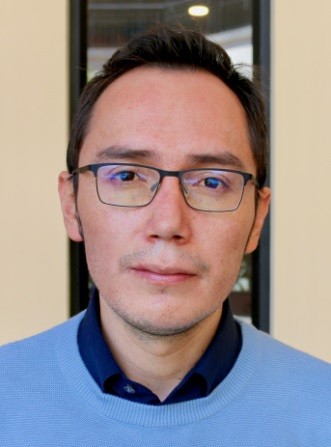
Conference theme: Towards the provision of the Residential Network as a Service Abstract: The promises of Software Defined Networks (SDN) and Network Functions Virtualization (NFV) to strengthen innovation and expedite the development of new services is changing the way in which residential networks will be designed, deployed, managed and maintained in the near future. Considering the big picture of the residential network, an SDN-based residential gateway, an SDN-based access network, and a cloud-based centralized user-centric management system would allow achieving a high level of automatization of the operational process of the ISP towards the provision of the Residential Network as a Service (RNaaS). Speaker biography: Ricardo Flores received the PhD degree in Telematics Systems Engineering from the Universidad Politécnica de Madrid (UPM), Spain, in 2018. He is currently a full-time professor at Computer Science Department of Universidad San Francisco de Quito (USFQ), Ecuador. His current research interests include SDN, NFV, Cloud-based Networking, and 5G networks. |
|
MSc. Juan Carlos Domínguez 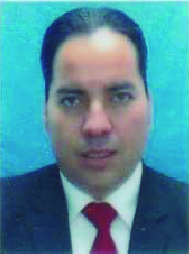
Conference theme: Security on the Internet of Things Abstract The advent of the Internet of Things (IoT) has created many new opportunities for connecting people, places, and things. It has also brought with it an ever-expanding attack surface for threat actors to exploit. Today's organizations are challenged with securely implementing many new devices into the existing information technology (IT) infrastructure. The IoT Security is a crucial knowledge to intelligently discuss and evaluate, at a basic level, the IoT security environment for a given business context. Speaker biography: Juan Carlos Domínguez Ayala, specialist in networks and communications, Cisco Networking Academy Instructor, university and continuing education teacher since 2010, interest in lines of research of new generation data networks, emerging technologies and Internet of things IoT. |
|
Ing. Andrés Muñoz 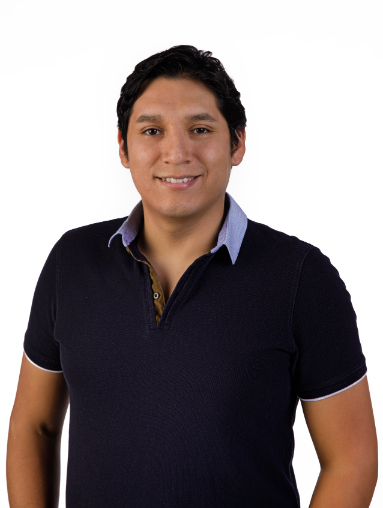
Conference theme: Development of a Prototype to Monitor the Electro Submersible Pumping System (ESP) of an Oil Well, using the IoT Architecture of the IoT World Forum (IoTWF) Abstract: The advent of the Internet of Things (IoT) has created many new opportunities for connecting people, places, and things. It has also brought with it an ever-expanding attack surface for threat actors to exploit. Today's organizations are challenged with securely implementing many new devices into the existing information technology (IT) infrastructure. The IoT Security is a crucial knowledge to intelligently discuss and evaluate, at a basic level, the IoT security environment for a given business context. Speaker biography: Andrés Muñoz is an IT Consultant and Software Developer, who has seven years of experience in the conception, management and execution of technological projects. He has worked with important companies in energy and technology industries in Ecuador and abroad (Blue IT, Pegaso Consortium, Devsu, Greenetics). Network Engineer (EPN) and Professional Master Scrum (Scrum.org). |
|
MSc. Luis Herrera Izquierdo e Ing. Cristina Rivera 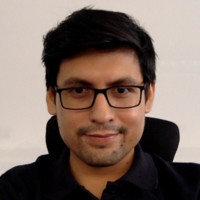 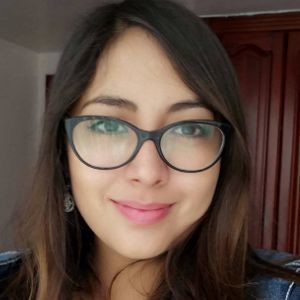 Conference theme: Micro-Frontend: An extension of frontend microservices to migrate monolithic web applications Abstract Web applications change over time, as well as architectures and frameworks, so it is important to properly design the various components that interact in our architecture, so that they are maintainable and scalable over time. Lately, frontend web applications face a notable problem in terms of adding more features on the same page, turning them into monolithic applications. As a consequence, the development, integration and deployment processes become more complex. This presentation will show how to effectively build modern web applications using frameworks, microframewoks and multi-stage Docker for integration processes and continuous deployment. The end result of the use of these combined tools are micro-frontends that can be developed by different teams simultaneously and that can be integrated and deployed independently in short periods of time. Speaker biography - MSc. Luis Herrera Izquierdo: Luis is Consultant Developer at ThoughtWorks and Community Leader at Docker. He has over 5 years of experience in creating large-scale distributed applications and integrating multiple systems; most recently he has been involved in providing consulting services to enterprises on design patterns, testing techniques, cloud migration strategy, implementation of continuous integration/delivery processes and agile development methodologies. He is passionate about creating tools for complex process automation and infrastructure management using code, which can generate synergies within multifunctional teams and boost the construction of exceptional products. Speaker biography - Ing. Cristina Rivera: Cristina studied Systems Engineering at the Escuela Politécnica Nacional, working as a research assistant at the same university in the field of web accessibility. After being hired at ThoughtWorks Ecuador in 2016, she traveled to the city of Pune in India for an intensive course in software development. She has been working at ThoughtWorks Chile since then as a software developer on full stack, mobile and backend digital product projects. She has been a speaker at events such as ThoughtWorks Meetups, Socrates 2017, Socrates 2018 and other events such as Ágiles 2018, Scrum Day Santiago 2018 and Scrum Day Perú 2018. She is passionate about architecture and software quality, frontend development and agile cultivation. |
|
MSc. Carlos Valarezo Loaiza e Ing. David Montaño 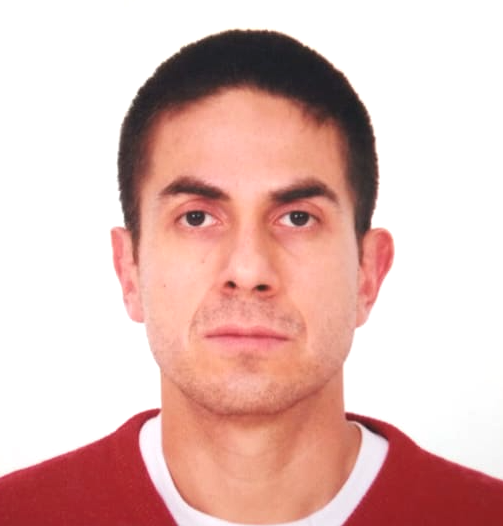 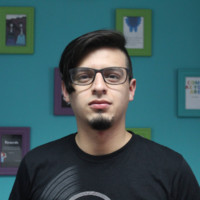 Conference theme: React Native? +? Native? o Native? Abstract: React Native is presented as an option to develop mobile applications by writing code only once and deploying to iOS and Android at the same time. In addition, it offers the possibility of implementing native code when the feature is not available for React Native. On the other hand, there are scenarios where developing the application with native code is the best option. How to identify these scenarios ?, When to use the right technology ?, In the chaos of having chosen the wrong one there is a turning back? These and other questions will be resolved during this talk.
Speaker biography - MSc. Carlos Valarezo Loaiza: Master’s in software engineering from the University of Manchester, England, Great Britain. Engineer in Informatic Systems and Computation from Universidad Técnica Particular de Loja. Currently, developer consultant in Thoughtworks Ecuador. Teacher at Universidad Nacional de Loja. Researcher and software developer at England BBC, Salford. Mobile and web developer for more than 10 year in different languages and technologies. |
|
Dr. Romel Tintin 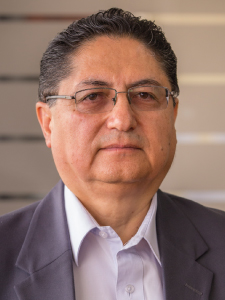
Conference theme: From 4G to 5G paradigm: Discussion, Evaluation and Ideas for an enthusiastic arrival of the new mobile technology in Ecuador Abstract: After presenting a brief description of the evolution of mobile communication technology starting from the first analog generation (1G) to the fifth-generation upstart (5G), an explanation of the adoption process in recent years in Ecuador of the fourth generation (4G) will be made, presenting data on the status of these technologies in the three operating companies. Finally, after a more detailed explanation of the 5G technology including its advantages and possible disadvantages, ideas and strategies for the arrival of the technology to Ecuador in an enthusiastic and beneficial way for the country will be presented. Discussion and questions will be opened to the public. Speaker biography: PhD in Computer Science and Telecommunications from the Advanced Institute of Science and Technology of Kwangju, South Korea; Master in Information Technology Sciences at the University of Fukui (Japan). Currently professor-researcher in Information Technology and Communication of the IAEN. Guest professor at Chonbuk University, South Korea; Professor of Artificial Intelligence, Simulation, Electronic Government, Process Management and others at the aforementioned University and the Technological Institute of Monterrey de México, among others. Former General Manager of NEC Corporation of Japan in Ecuador and other public and private positions in the country and abroad. Outstanding projects on 4G technology for mobile communication and on international submarine fiber optic cables for Ecuador. Author of several scientific publications or papers refereed in indexed journals and at international conferences. |
|
Ing. Ramiro Pulgar 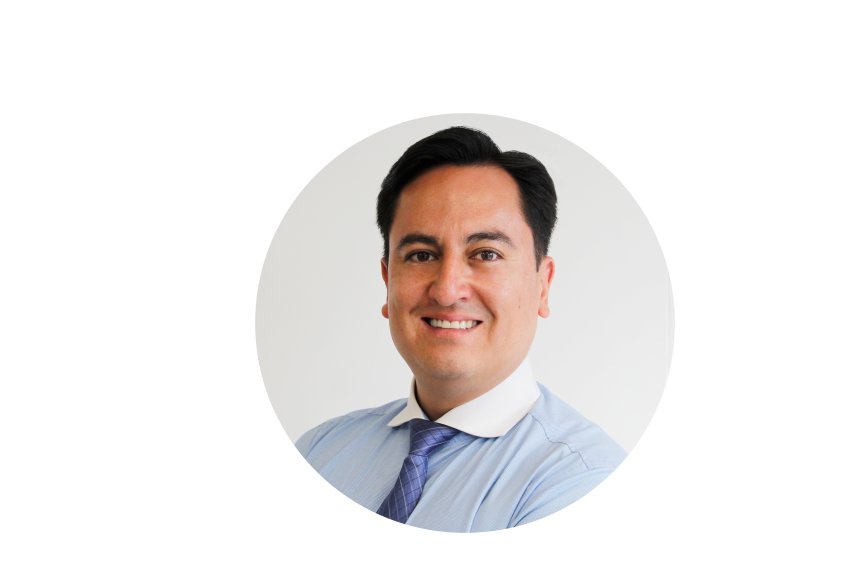
Conference theme: Cyber Threat Hunting Speaker biography: Ramiro is CyberSecurity Expert of Blue Hat Consultores with more than 16 years of experience in the field of ICTs and Information Security, who has led and developed projects and training in Argentina, Brazil, Colombia, Ecuador, Panama and the Dominican Republic. It has more than 20 international certifications in force in Information Security, Forensic Investigation and Cybersecurity. |
|
Dra. Lorena Recalde
Conference theme: Analysis and Use of Social Media Data in E-Government Abstract: Digital citizenship is the ability to use technology to obtain political information. Besides, the frequent use of it elicits online participation of individuals in society. The impact of OSNs in civic engagement, democratic participation, political party supporters interaction and voting is evident in recent years. Moreover, the massive digital information people and organizations generate every day and the increasing use of online social networking and related technologies, is changing the way in which Government, Business and Society behave. Consequently, the use and processing of social media data have become an emerging issue. Speaker biography: Lorena Recalde obtained her Ph.D. at the Pompeu Fabra University, Spain, where she collaborated in the Web Science and Social Computing research group. Her main research topics are Recommender Systems, with special focus on user interest modeling, Web Mining, ML and NLP. Lorena has several publications in international conferences and journals. |



